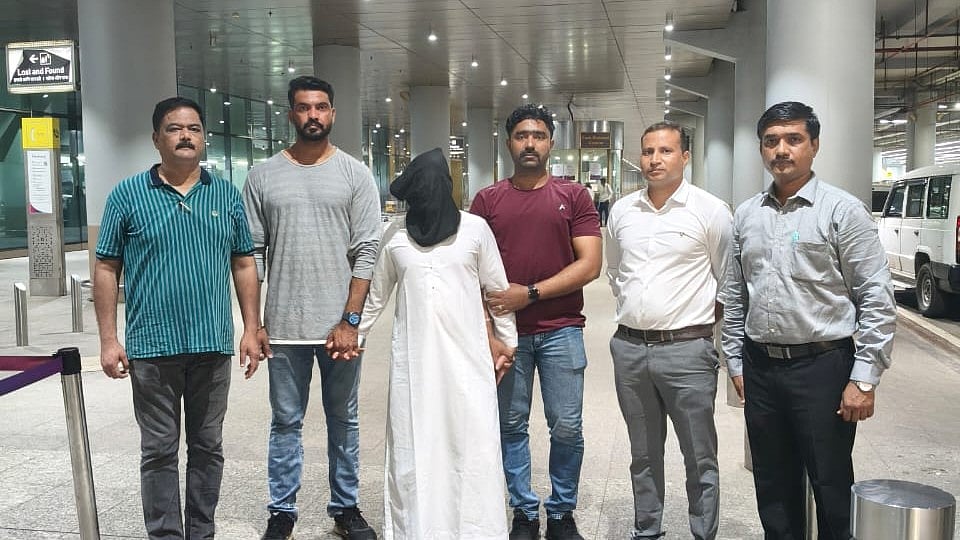The blowback from Manipur has temporarily stopped Assam Chief Minister Himanta Biswa Sarma’s communal broadcasts, but they are bound to resume after the storm subsides and the BJP ship sails into calmer waters. Sarma is so Hindutva-savvy and such a motormouth that he keeps calling Assam’s Muslims “Miyas” — a derogatory term for ethnic Bengali Muslims comprising 34% of the Northeastern state’s population — while sitting in the CM’s chair. There is no other CM in India against whom FIRs have been lodged for hate speech in his own state!
To be honest, it is the utter disregard for constitutional propriety and political morality that places Sarma in the same league as Uttar Pradesh Chief Minister Yogi Adityanath. Clearly, they are two of a kind. But more of that later.
Just before a video of the rape of Manipur’s Christian Kuki women exploded in Prime Minister Narendra Modi’s and the BJP’s face on the first day of the monsoon session of Parliament, Sarma openly said that Miyas were hiking the price of vegetables and overcharging Hindus in Guwahati. He publicly exhorted Assamese Hindus to not only take over the lucrative business in vegetables but also instigated them to evict Miyas from other occupations like driving rickshaws, buses, trucks and app cabs; he specifically said that 70% of Ola and Uber drivers are Muslims. All that was in perfect sync with the CM earlier accusing Miyas of waging what he called “fertiliser jihad” by “uncontrolled use of fertiliser” in farming resulting in illnesses and sickness among unsuspecting Hindus. Sarma has undeniably made a political career out of demonising Assam’s Muslims as illegal immigrants, to unite Hindus for winning election after election.
Importantly, Sarma has successfully transitioned from a regional BJP leader to a national leader in the truest sense. The top BJP leadership is drawn from the Hindi-speaking states in northern, central and western India making Sarma an outstanding and rare exception in the party governing the country since 2014. It is indeed the first time that a politician from the far-flung Northeastern region has emerged as a national leader of a major political party. And behind Sarma’s emergence as a national leader — eclipsing competitors even from the mainland — is none other than Amit Shah, the second most powerful BJP leader after Modi in both the government and the party.
Sarma was one of the BJP’s star campaigners in Karnataka; after the BJP’s defeat he even asserted that his party won all the seats where he had canvassed for votes. National parties like the Congress and BJP do give cabinet berths to their MPs from the Northeast but never use them for canvassing outside the Northeast. In that sense, Sarma is the first politician from the Northeast to be deployed by a national party for electioneering in what is known as the mainland. During the Gujarat elections, the BJP pressed Sarma into action with other star campaigners led by none other than Modi to ensure a record-breaking poll victory. This proves how high Sarma has risen in national politics, leaving behind not only other Northeastern politicians but joining a countrywide select group of politicians who are considered vote-catchers by the BJP leadership. Sarma campaigned extensively for the BJP also in Himachal Pradesh and Delhi which went to the polls simultaneously with Gujarat underlining his usefulness for the party. His footprint is steadily growing because the pro-BJP electronic and print media dutifully amplify his headline-grabbing assertions, fuelling his transformation from a regional to a national figure.
Sarma’s pre-eminence in India’s dominant party rests on three hard-core Hindutva planks: demonising Muslims, targeting Christians and ridiculing Rahul Gandhi — he famously compared a bearded Gandhi to Saddam Hussain during the Bharat Jodo Yatra. Sarma is Assamese but has diligently mastered the Hindi language, enabling him to give election speeches in the political heartland and connect with voters across India.
While campaigning in Gujarat, Sarma milked the gruesome murder of Shraddha Walkar, a Hindu woman, who was chopped into 34 pieces allegedly by her Muslim boyfriend Aftab Poonawala. To polarise the electorate, Sarma told voters that no Hindu woman is safe in India and could meet the same fate as Shraddha at the hands of a Muslim man. He deliberately gave it a religious colour by portraying Poonawala as the murderer although he is yet to be tried or convicted. There are even reports that it was an honour killing. The partisan poll watchdog, Election Commission, failed to take any action against the religious dog-whistling. Sarma earlier advocated the National Register of Citizens (NRC) in Assam and the Citizenship Amendment Act (CAA), and after becoming CM in mid-2021, he subjected Muslims encroaching government land to barbaric eviction drives, used bulldozers to destroy Muslim homes, shut down madrasas calling them breeding grounds of terrorism, and kept raising the bogey of “threats to Hindus in Assam” to fan hatred for Muslims.
At present there are two cabinet ministers — Sarbananda Sonowal and Kiren Rijiju — and three junior ministers — Rameshwar Teli, Pratima Bhoumik and Rajkumar Ranjan Singh — from the Northeast in the BJP central government but Sarma’s importance and standing surpasses theirs by a huge margin.
Sarma’s first patron-cum-benefactor in the BJP-RSS was Ram Madhav who was subsequently side-lined and doesn’t wield power any longer. But Sarma’s current godfather is Amit Shah. It was Shah who summoned Sarma to Gujarat for campaigning which raised Sarma’s profile and brought him to the centre-stage of national politics. Shah, of course, has a vested interest in Sarma’s rise and rise. Shah, 59, is mentoring the 54-year-old Sarma to compete with Hindutva icon Yogi Adityanath, who is 51. Shah desperately wants Sarma and Adityanath to compete with one another so that he can fulfil his life’s ambition of stepping into Modi’s shoes when the time comes. No prizes for guessing who’s praying for the Manipur storm to blow over so that Sarma can restart his war games.
SNM Abdi is an independent, Pegasused reporter and commentator on foreign policy and domestic politics











